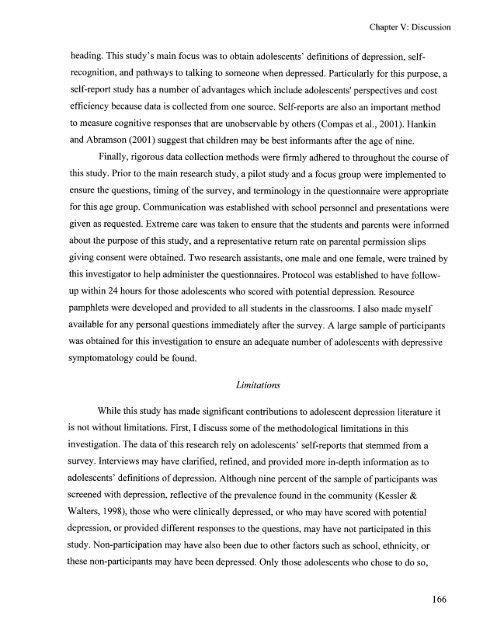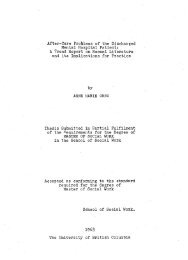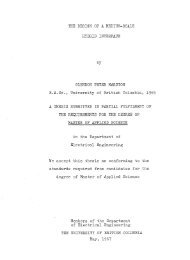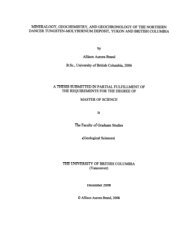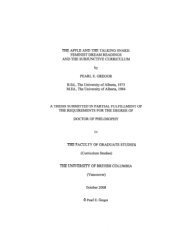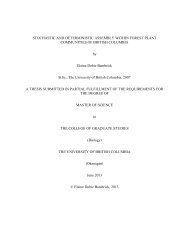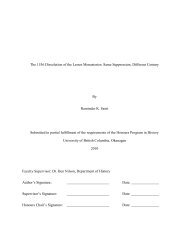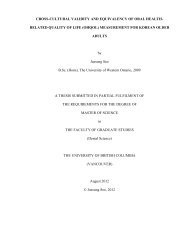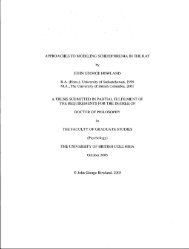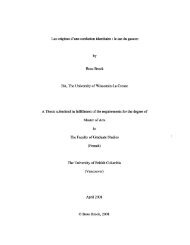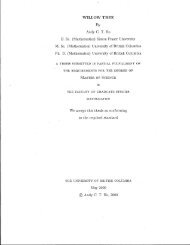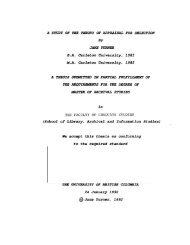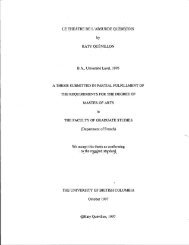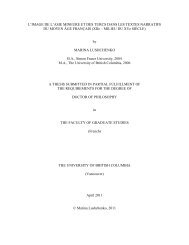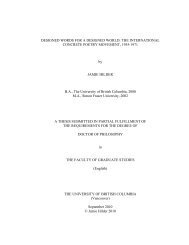how do adolescents define depression? - cIRcle - University of ...
how do adolescents define depression? - cIRcle - University of ...
how do adolescents define depression? - cIRcle - University of ...
You also want an ePaper? Increase the reach of your titles
YUMPU automatically turns print PDFs into web optimized ePapers that Google loves.
Chapter V: Discussion<br />
heading. This study's main focus was to obtain a<strong>do</strong>lescents' definitions <strong>of</strong> <strong>depression</strong>, self-<br />
recognition, and pathways to talking to someone when depressed. Particularly for this purpose, a<br />
self-report study has a number <strong>of</strong> advantages which include a<strong>do</strong>lescents' perspectives and cost<br />
efficiency because data is collected from one source. Self-reports are also an important method<br />
to measure cognitive responses that are unobservable by others (Compas et al., 2001). Hankin<br />
and Abramson (2001) suggest that children may be best informants after the age <strong>of</strong> nine.<br />
Finally, rigorous data collection methods were firmly adhered to throughout the course <strong>of</strong><br />
this study. Prior to the main research study, a pilot study and a focus group were implemented to<br />
ensure the questions, timing <strong>of</strong> the survey, and terminology in the questionnaire were appropriate<br />
for this age group. Communication was established with school personnel and presentations were<br />
given as requested. Extreme care was taken to ensure that the students and parents were informed<br />
about the purpose <strong>of</strong> this study, and a representative return rate on parental permission slips<br />
giving consent were obtained. Two research assistants, one male and one female, were trained by<br />
this investigator to help administer the questionnaires. Protocol was established to have follow-<br />
up within 24 hours for those a<strong>do</strong>lescents who scored with potential <strong>depression</strong>. Resource<br />
pamphlets were developed and provided to all students in the classrooms. I also made myself<br />
available for any personal questions immediately after the survey. A large sample <strong>of</strong> participants<br />
was obtained for this investigation to ensure an adequate number <strong>of</strong> a<strong>do</strong>lescents with depressive<br />
symptomatology could be found.<br />
Limitations<br />
While this study has made significant contributions to a<strong>do</strong>lescent <strong>depression</strong> literature it<br />
is not without limitations. First, I discuss some <strong>of</strong> the metho<strong>do</strong>logical limitations in this<br />
investigation. The data <strong>of</strong> this research rely on a<strong>do</strong>lescents' self-reports that stemmed from a<br />
survey. Interviews may have clarified, refined, and provided more in-depth information as to<br />
a<strong>do</strong>lescents' definitions <strong>of</strong> <strong>depression</strong>. Although nine percent <strong>of</strong> the sample <strong>of</strong> participants was<br />
screened with <strong>depression</strong>, reflective <strong>of</strong> the prevalence found in the community (Kessler &<br />
Walters, 1998), those who were clinically depressed, or who may have scored with potential<br />
<strong>depression</strong>, or provided different responses to the questions, may have not participated in this<br />
study. Non-participation may have also been due to other factors such as school, ethnicity, or<br />
these non-participants may have been depressed. Only those a<strong>do</strong>lescents who chose to <strong>do</strong> so,<br />
166


